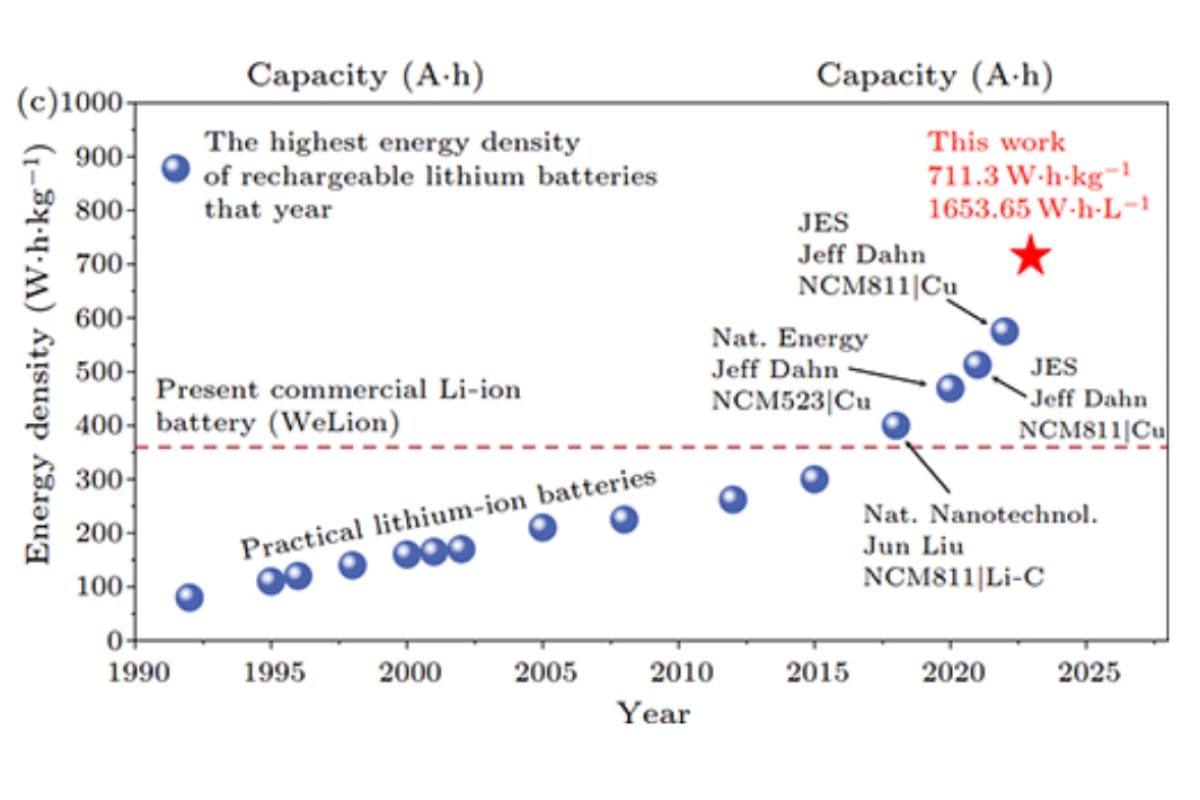Tesla's 4680 cells, for comparison, measure somewhere between 244-296 Wh/kg. So the extreme-density cells recently tested in Beijing represent a huge leap forward from the status quo – even if they're solely focused on maximizing a single metric.
The current cells, frankly, are good enough for most electric car use cases. But in other areas – such as high-powered mobile devices, high-performance electric motorcycles, and above all, electric aircraft and eVTOLs – manufacturers are crying out for batteries that can pack more energy into significantly less weight.
There are some pretty impressive new cells beginning to trickle onto the market – CATL's 500 Wh/kg "condensed battery," for one. But in terms of single-purpose cells designed purely to max out specific energy, the previous highest figure ever reported was a 575 Wh/kg anode-free pouch cell tested by Dalhousie University professor Jeff Dahn and his team.
This has now been smashed by a team from the Institute of Physics at the Chinese Academy of Sciences. A small team developed a rechargeable 10-Ah pouch cell using an ultra-thin lithium metal anode, and a lithium-rich, manganese oxide-based cathode.
The team expanded the charge/discharge voltage range, and studied the structural stability of the cathode, as well as how modifications to the surface of the lithium anode affected the way in which lithium ions deposit onto the electrode and dissolve away from it as the battery charges and discharges.
The battery tested at 711.3 Wh/kg, and it also offered an exceptional volumetric energy density of 1,653.65 Wh/liter.
Naturally, it's just a research-grade lab cell, and a long way off any form of commercialization. Building this prototype required "extremely advanced process technologies such as high-loading electrode preparation and lean electrolyte injection," so they'd likely be very expensive.
And since the team went in targeting extreme density above all else, there are surely compromises. There's no mention of how much power the cell is capable of putting out or taking in at a time, or what its lifespan is like, or how it performs at different temperatures, or whether it maintains a strong output as it comes close to running out, or whether it has a tendency to cause a fireball when something goes wrong. All of these points and many more will need to be solved before these kinds of things hit the market.
The researchers say there's still room for improvement even on the density metrics, so it'll be interesting to see if they best their own record from here.
The paper is available in the "rapid publication" journal Chinese Physics Letters.
Source: Chinese Academy of Sciences





